Photo: Frank Fieber
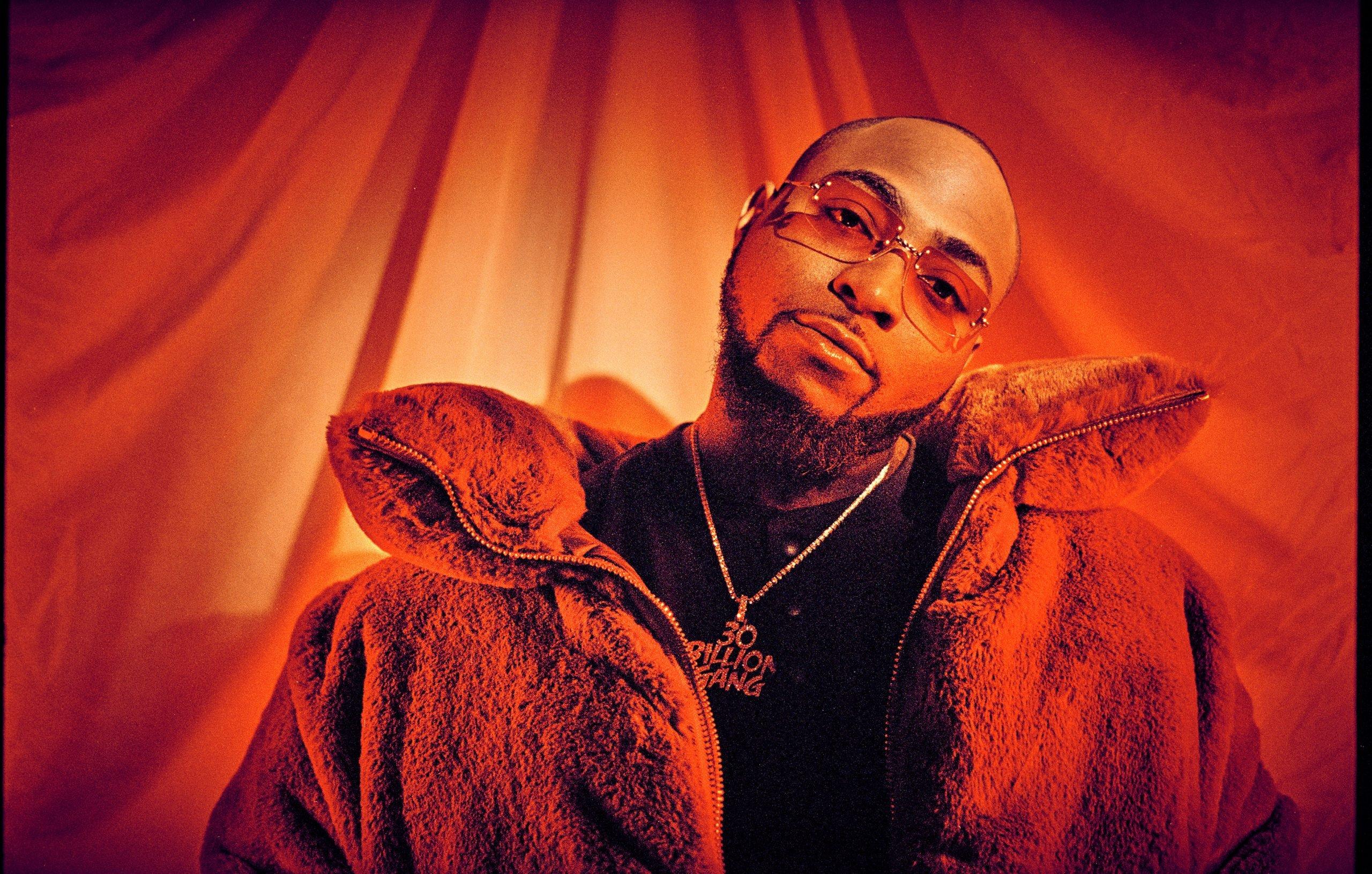
Davido
news
Davido Set For GRAMMY Museum Mentorship Monday Instagram Live Event
The Afrobeats star singer/songwriter and producer will offer up guidance to college students and recent graduates in the latest edition of the ongoing series
The GRAMMY Museum has announced the next special guest in its Mentorship Monday series: singer, songwriter and producer Davido. You can catch the session Monday, Aug. 31 from 11:30–12:30 p.m. PT on the GRAMMY Museum's Instagram.
The 27-year-old breakout Afrobeats star will participate in the instagram Live event as part of its Mentorship Monday series in partnership with GRAMMY U and former first lady Michelle Obama's Reach Higher initiative. Every Monday from July 20 through Aug. 31, top-tier music industry professionals have mentored college students and recent graduates via digital conferencing.
Davido has been everywhere of late. He was featured on the May 2020 cover of Billboard magazine and was a guest on "The Tonight Show Starring Jimmy Fallon" just last month. According to Rolling Stone, his single "Fall" off his 2019 album, A Good Time, holds the record for the longest Nigerian pop song in Billboard history.
We recently spoke with Davido about his rise to success and what he loves about his African musical influences.
"To me, when I listen to Afrobeats, it's just a different feeling," he sad. "You'd be in the club, they play hip-hop, trap, R&B, whatever the case may be. And once the Afrobeat come on, you can tell the difference from the scenery, the feeling, the beats. Most people don't even know what we saying, but they still listen to it. So that's the great thing about it."
<style>.embed-container { position: relative; padding-bottom: 56.25%; height: 0; overflow: hidden; max-width: 100%; } .embed-container iframe, .embed-container object, .embed-container embed { position: absolute; top: 0; left: 0; width: 100%; height: 100%; }</style><div class='embed-container'><iframe src='https://www.youtube.com/embed/3Iyuym-Gci0' frameborder='0' allowfullscreen></iframe></div>
The Mentroship Monday sessions have provided an opportunity for students to connect with established music industry professionals and creatives, and served as a valuable tool for information, advice and exploration within a wide variety of music careers and topics as they pursue their own careers.
The Instagram Live event features Davido and will be hosted by GRAMMY Museum Education Coordinator Schyler O'Neal. For more information, visit www.grammymuseum.org, "like" the GRAMMY Museum on Facebook, and follow @GRAMMYMuseum on Twitter and Instagram.
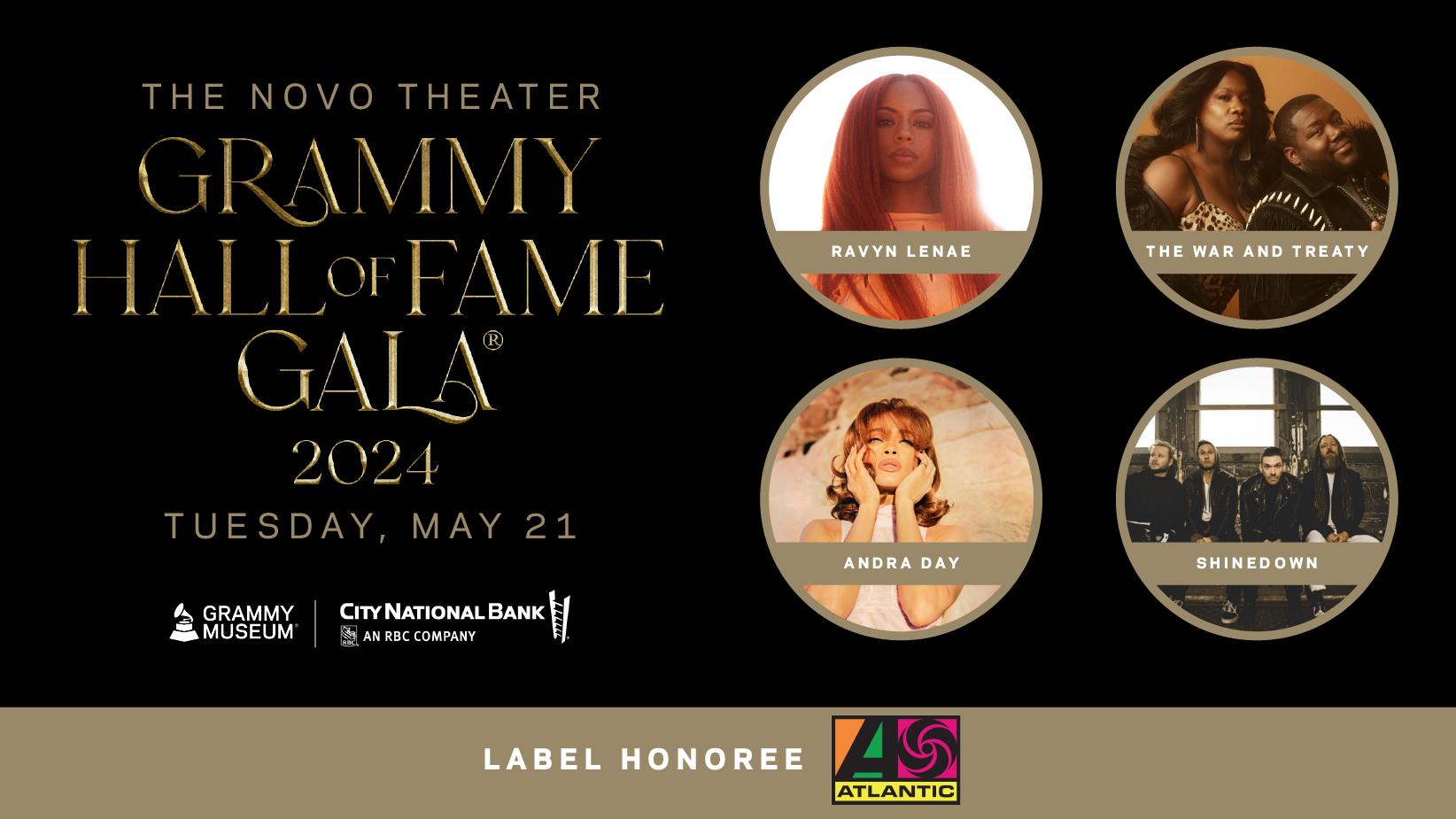
Image courtesy of the Recording Academy
news
GRAMMY Hall Of Fame Gala 2024 Performers Announced: Andra Day, The War And Treaty, Ravyn Lenae, Shinedown And More Confirmed
The Recording Academy and GRAMMY Museum's inaugural GRAMMY Hall Of Fame Gala will take place Tuesday, May 21, at the Novo Theater in Los Angeles. Atlantic Records will be the first label honoree. Tickets go on sale Saturday, April 27 at noon PT/3 p.m. ET.
The inaugural GRAMMY Hall Of Fame Gala is just ahead — and now, we know which musicians will grace the stage. Andra Day, Ravyn Lenae, Shinedown, and the War and Treaty will perform at the Recording Academy and GRAMMY Museum's gala, with more performers to be announced at a later date.
The Gala will take place on May 21, 2024, at the Novo Theater in Downtown Los Angeles and will be hosted by veteran CBS broadcast journalist Anthony Mason. The annual Gala will also honor a label, with the first being Atlantic Records.
Tickets go on sale to the general public on Saturday, April 27, 2024 at 12 p.m. PT at this link. More information about the GRAMMY Hall Of Fame Gala is available here.
The inaugural Hall Of Fame Gala will honor the 2024 GRAMMY Hall Of Fame inducted recordings on its 50th Anniversary, including De La Soul's 3 Feet High And Rising, Guns N' Roses' Appetite For Destruction, Buena Vista Social Club's Buena Vista Social Club, and Lauryn Hill's The Miseducation Of Lauryn Hill, as well as recordings by Donna Summer, Charley Pride, Wanda Jackson, Kid Ory's Creole Orchestra, the Doobie Brothers, and William Bell.
The Gala will also pay tribute to iconic record label Atlantic Records, which is celebrating its 75th anniversary, and has over 38 recordings already inducted into the GRAMMY Hall Of Fame.
"We're honored that the Recording Academy and GRAMMY Museum have chosen Atlantic to be the first label celebrated at what promises to be an exciting annual event," said Atlantic Music Group Chairman & CEO Julie Greenwald and Atlantic Records Chairman & CEO Craig Kallman. "The GRAMMY Hall Of Fame includes many of the most groundbreaking recordings in our company's 75-year history, and it will be great to hear some of our outstanding current artists bring their unique voices to these timeless songs."
"We are thrilled to be able to recognize Atlantic Records' incomparable contribution to recorded music, including numerous Hall Of Fame inducted recordings, as our first Hall Of Fame Gala label honoree. We're looking forward to celebrating them along with this year's inducted recordings during an unforgettable evening of performances by some of today's most talented artists," says Michael Sticka, President/CEO of the GRAMMY Museum.
The evening will include a red carpet and VIP reception on the Ray Charles Terrace at the GRAMMY Museum followed by a one-of-a-kind concert at the Novo Theater. This year's show will be produced by longtime Executive Producer of the GRAMMY Awards, Ken Ehrlich, along with Chantel Sausedo and Ron Basile. Musical Direction by globally renowned producer and keyboardist Greg Phillinganes. The Gala is presented by City National Bank.
The GRAMMY Hall Of Fame was established by the Recording Academy's National Trustees in 1973. The inducted recordings are selected annually by a special member committee of eminent and knowledgeable professionals from all branches of the recording arts with final
ratification by the Recording Academy's National Board of Trustees.
With 10 new titles, the Hall currently totals 1,152 inducted recordings in the GRAMMY Hall Of Fame. Recipients will receive an official certificate from the Recording Academy and GRAMMY Museum.
The full list of past inducted recordings can be viewed here. For sponsorship opportunities, reach out to halloffame@grammymuseum.org. And keep checking GRAMMY.com for more info about the GRAMMY Hall of Fame gala, and beyond!
Shinedown Open Up About Upcoming Album Planet Zero, 20 Years Of Road Warriordom & Why Rock Is A Tonic Against Global Toxicity
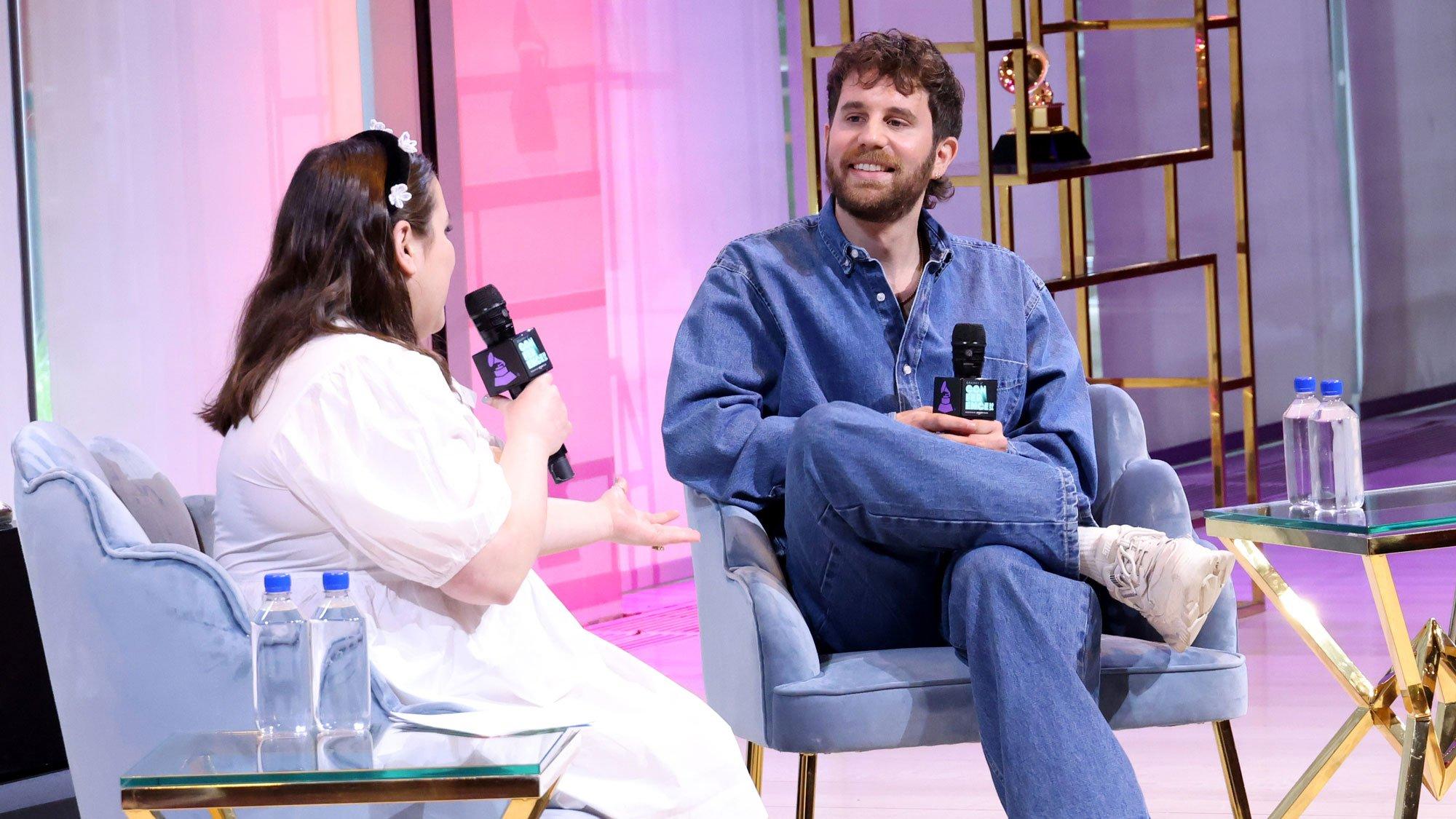
Photp: Rob Kim/Getty Images for The Recording Academy
press_release
Recording Academy & Amazon Music Host 2024 GRAMMY U Conference In New York Featuring Ben Platt
The two-day conference included a showcase of GRAMMY U performers and Infinity Song, as well as panels and workshops geared toward live television and Broadway musical performances, in addition to a thought-provoking keynote from Ben Platt.
GRAMMY U hosted a two-day conference presented by Amazon Music for GRAMMY U members in New York City on April 19 and 20. The event, spearheaded by GRAMMY U Senior Director Jessie Allen, offered an immersive experience designed to enrich and empower emerging talents within the music industry.
An emerging artist showcase took place on Friday, April 19, followed by a day-long series of panels and breakout sessions on Saturday, April 20, highlighting the live performance industries of Broadway and television talk shows, featuring GRAMMY, Tony, and Emmy-winning artist and actor Ben Platt as the keynote speaker.
The summit marks the beginning of a new cornerstone collaboration between GRAMMY U and Amazon Music, in which Amazon Music will play an integral role in the growth of GRAMMY U’s year-round programming, development and impact. Mastercard was also a participating sponsor of the conference.
“We were all thrilled to bring the GRAMMY U Conference to the heart of New York City. It’s a testament to the dedication of Jessie Allen, whose leadership has elevated this event year after year,” said Ruby Marchand, Chief Awards Officer of the Recording Academy. “I extend heartfelt gratitude to the Amazon Music Team for supporting GRAMMY U; this marks the genesis of an extraordinary collaboration, and together, we look forward to crafting an array of programs that will empower our GRAMMY U members throughout the year.”
The emerging artist showcase featured dynamic performances by GRAMMY U members Kayla Erhardt, Kühlname, Serena Laurel, Nicknames, Liv Paris, and Your Future Is Now scholar Jawan Audè. The evening concluded with a captivating performance by New York soft rock sibling ensemble, Infinity Song.
Saturday’s programming kicked off with keynote speaker Ben Platt. In a thought-provoking keynote discussion moderated by actor Beanie Feldstein, Platt delved into his musical journey spanning Broadway, film and television, inspiring attendees with his insights. The day continued with a performance workshop led by GRAMMY, Emmy, and Tony-winner Billy Porter. Moderated by SiriusXM Program Director Julie James, attendees immersed themselves in a captivating session aimed at honing their live performance skills.
The conference included a panel featuring “Late Night with Seth Meyers” Music Associate Producer Yeji Cha-Beach, former member of the “Late Night with Seth Meyers” 8G Band, Marnie Stern, and musician Remi Wolf. Titled “On Screen: Performing on Live TV,” the panel covered the challenges and nuances of delivering live musical performances on television, and was moderated by Siobhan Schanda, Co-Executive Producer of “SHERRI.”
Programming continued with a panel titled “Sounds of the Stage,” moderated by Thomas Winkler, Head of Publisher, Songwriter and Society Relations at Amazon Music, featuring SVP of Warner Music Entertainment and Theatrical Ventures Kurt Deutsch, Co-Founder of Park Avenue Artists David Lai, and composer, conductor and producer Kathy Sommer, where they explored sound production on stage and cast recordings.
Additional panels included “Side Stage: The Team Behind the Curtain,” featuring industry executives moderated by Michael Kushner, founder of Michael Kushner Photography and Dear Multi-Hyphenate, featuring producer, actor and director Erich Bergen, President of A&R of Atlantic Records Pete Ganbarg, Executive Producer of DR Theatrical Management Adam Hess, and Tony-nominated Broadway producer and vocalist Christen James, where they detailed the business of Broadway and how teams bring shows to life every night.
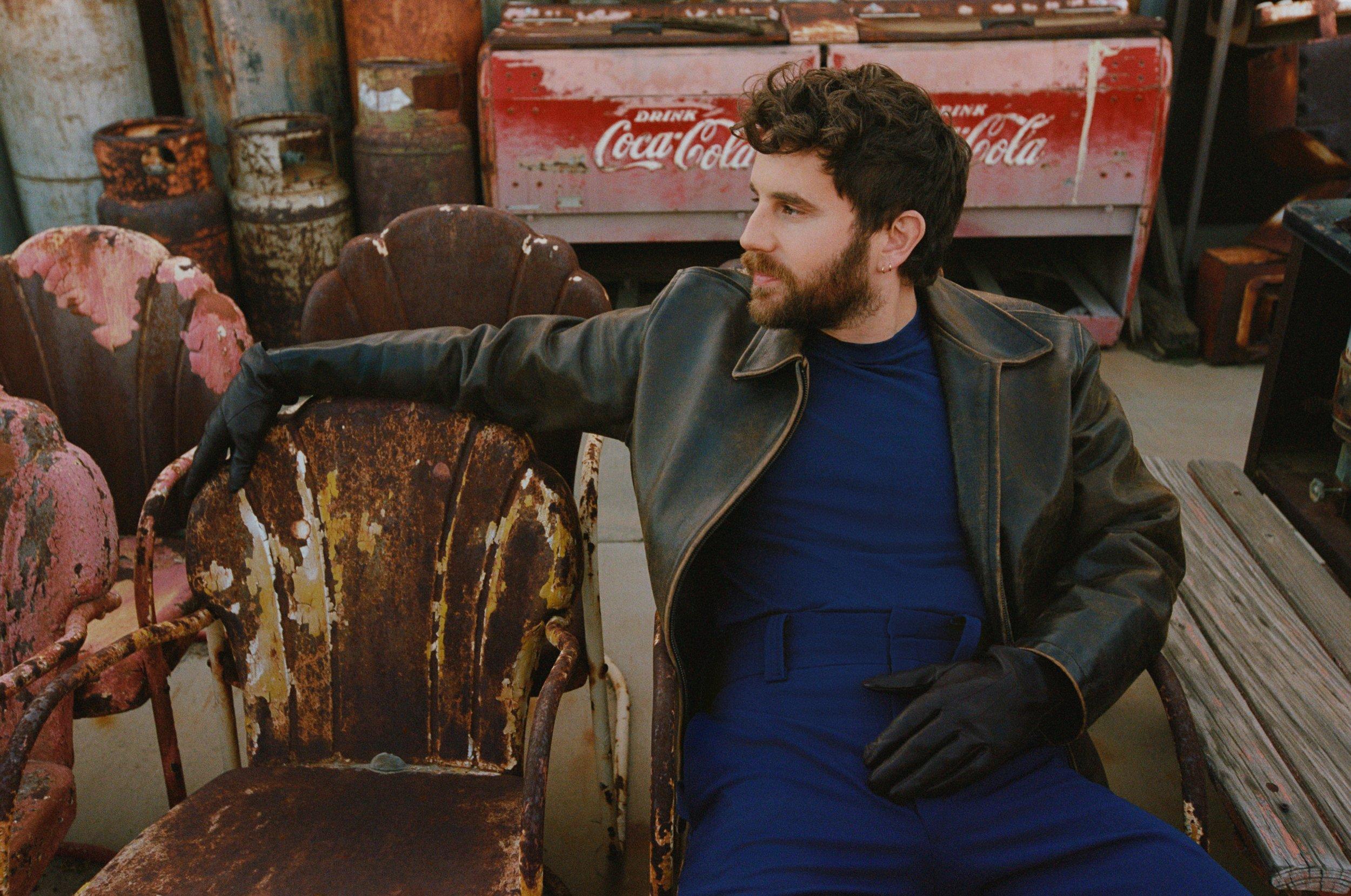
Photo: Vince Aung
interview
Inside Ben Platt's 'Honeymind': How Queer Love, Live Performance & More Led To His Most Authentic Album Yet
Ben Platt's expansive artistry has taken him from Broadway to the recording studio, and his new album continues this evolution. 'Honeymind' shows Ben Platt at his most honest and vulnerable, embracing a new sound.
Ben Platt has never allowed the world to dictate his fate. The GRAMMY, Tony, and Emmy-winner's artistic outpouring has been relentless, and he's still early in his career.
The 30-year-old actor and singer has performed in Broadway musicals like "Parade" and "Dear Evan Hansen," sold out Madison Square Garden and the Hollywood Bowl as a solo artist, and starred and co-wrote the film Theater Camp. Each project has marked a step into a new direction, but none more so than Honeymind — an album that captures what it's like to chase tender and safe intimacy in partnership, and the ecstasy that follows once found.
His professional growth between 2021's Reverie and Honeymind is apparent not just thematically, but sonically and in production. This latest album sounds natural and lush, with input from GRAMMY-winning producer Dave Cobb and producer/songwriter/multi-instrumentalist Alex Hope. While Honeymind shows a version of Platt some listeners may not be accustomed to, he's never sounded more comfortable in his own skin.
To celebrate the release of Honeymind, Platt will headline a three-week residency in New York City's Palace Theatre and a subsequent nationwide summer tour and serve as the keynote speaker at this year’s GRAMMY U Conference. He spoke with GRAMMY.com about his latest album, upcoming residency, and the beautiful and, at times, tricky trappings of romantic love.
This interview has been edited for clarity.
Honeymind shifts away from the '80s electro-pop of Reverie and your Broadway roots. What made you gravitate towards a more tender, folky sound that exudes warmth and serenity?
The biggest catalyst was that I wanted to go and write Nashville because I admired so many songwriters there. When I started with my first round of writing sessions for this record — which was back in the spring of 2022 — what just very naturally started coming out was this super unadorned, very storytelling-forward type of music.
When I made my first record [2019], it was very close after I had been on Broadway for a long time, and it was theatrically linked. Then, I experimented with leaning into pop and this Peter Gabriel vibe, but it felt like a landing pad this time. I closed my eyes and went, What's the most natural way to communicate in terms of what is specific to me? This seemed to fit really nicely.
You worked with renowned producers like Dave Cobb on this album. There are times when the producer’s work stands out most, but Honeymind sounds like you. How did you ensure that all tracks sounded distinctly like you versus a Dave Cobb song?
I loved the idea of working with Dave! His specialty is unadorned things that are as essential as they can be. When it comes to my own sound, my priority is always obviously storytelling and songwriting, but certainly, to have the vocal performance be very much the focus. Dave was very amenable to that.
I went and wrote the songs with my co-writers before starting work with Dave, and I sort of came in with all of his songs completed. He did a beautiful job of preserving the integrity of the songs I’d written. [He wanted] to present them in as organic and straightforward a way as possible, as opposed to trying to sort of put a secondary sound onto it.
Your previous work has been personal to varying degrees, but your lead single, "Andrew," feels particularly candid.
I wrote that song with Alex Hope, one of my favorite longtime collaborators, and I had a session earlier in the week with someone else who was also wonderful. [This first songwriter] was talking to me about her son, who was 10 or 11, and how he had his best friend, a boy he loved so much. She shared that she had an inclination that more love was going towards this friend and was coming back to him [than] he could even really communicate.
It reminded me so deeply and immediately of so many different experiences growing up: having straight friends in high school and middle school, who you just love and who aren't doing anything wrong, but just by virtue of chemicals and how we're born, you develop feelings that just can't be reciprocated. [That's] such a special kind of melancholy. It's no one's fault, and I hadn't heard that strain of unrequited love and that particular type of melancholy expressed in a song.
The next day, I went in with Alex and pitched them a song, and they're queer as well and understood the perspective, so it came out very quickly.
What about queer love do you find most challenging to articulate?
Developing feelings for people that just don't have it in their blood to feel the same way is a uniquely queer experience, [as is] boundarylessness both positively and negatively. It's very particular to queer love in the sense that there are a lot less societal examples, and sort of prerequisites, for what queer relationships look like or shouldn't be. Which is so freeing and wonderful and makes for a really beautiful, honest relationship. Still, it's also a little scary because you're flying blind in a way that is very particular to being a queer person.
There's an inherent sort of rebellion and statement that you have to be making every day when you're out in the world with your partner as a queer person because there remain so many people who are intolerant, don't understand, and are still fearful and judgmental. It requires an extra bit of courage just to engage in the relationship.
You have a three-week residency at New York City's Palace Theatre, where legends like Elvis Presley, Diana Ross, and Judy Garland performed and will tour afterward. How are you feeling as you prepare for these concerts?
When I finish the record and sit on it, it exists in limbo; I start to second-guess it, feel like I'm losing my connection to it, or forget. I don't feel like I'm in the same place as I was when I wrote these things because they're so intimate.
But for me, the whole shebang has always been getting to perform live, and that's just my greatest joy. The songs are the most mine when I'm singing them live. I also love sharing music with people, and hearing in person and online conversations, about how it applies to their lives, how it reminds them of things, and how they use it. The tour is always the part where I'm the most in love with the album, and when the tour ends, I'm ready to let it out into the world and say goodbye for a minute.
Beyond the risk of trying something new in your career, what roles do failure, trial, and error play in your creative process or other parts of your life?
For every song I've written that I love or even come out, there are eight to 10 that I never want to see in the light of day.
It's hard to find the good things until you throw everything at the wall, and if you're too afraid to fall, then you'll never really try in the first place. And I was privileged because I started working quite young; things went from A to B to C in the sense that they went steadily. As I get older, I learn that a career is more about this longer journey that is not at all linear. Now that I have some hindsight, it's easy to appreciate the down moments and the valleys because that's the only way you recognize when something is going well. I try to be grateful for those moments of failure or misstep when they come because it's an essential part of being an artist — not the funnest part always, but necessary.
You'll be the keynote speaker at the 2024 GRAMMY U Conference for young professionals. What do you want to share most with conference attendees?
I must share my transparency and experiences and try to help learn by failure and success. I've found, in all facets, that specificity begets universality, and I'm trying to be as specifically honest about my role in how I approached songwriting in my own artistry — whether that's something someone will directly connect to, create a tangential connection to something else, or be an example of something that doesn't work for someone.
Art is so tailor-made, so it's just about sharing ideas and seeing what sticks.
New Broadway Musicals To See This Spring: "Hell's Kitchen," "The Wiz" & More
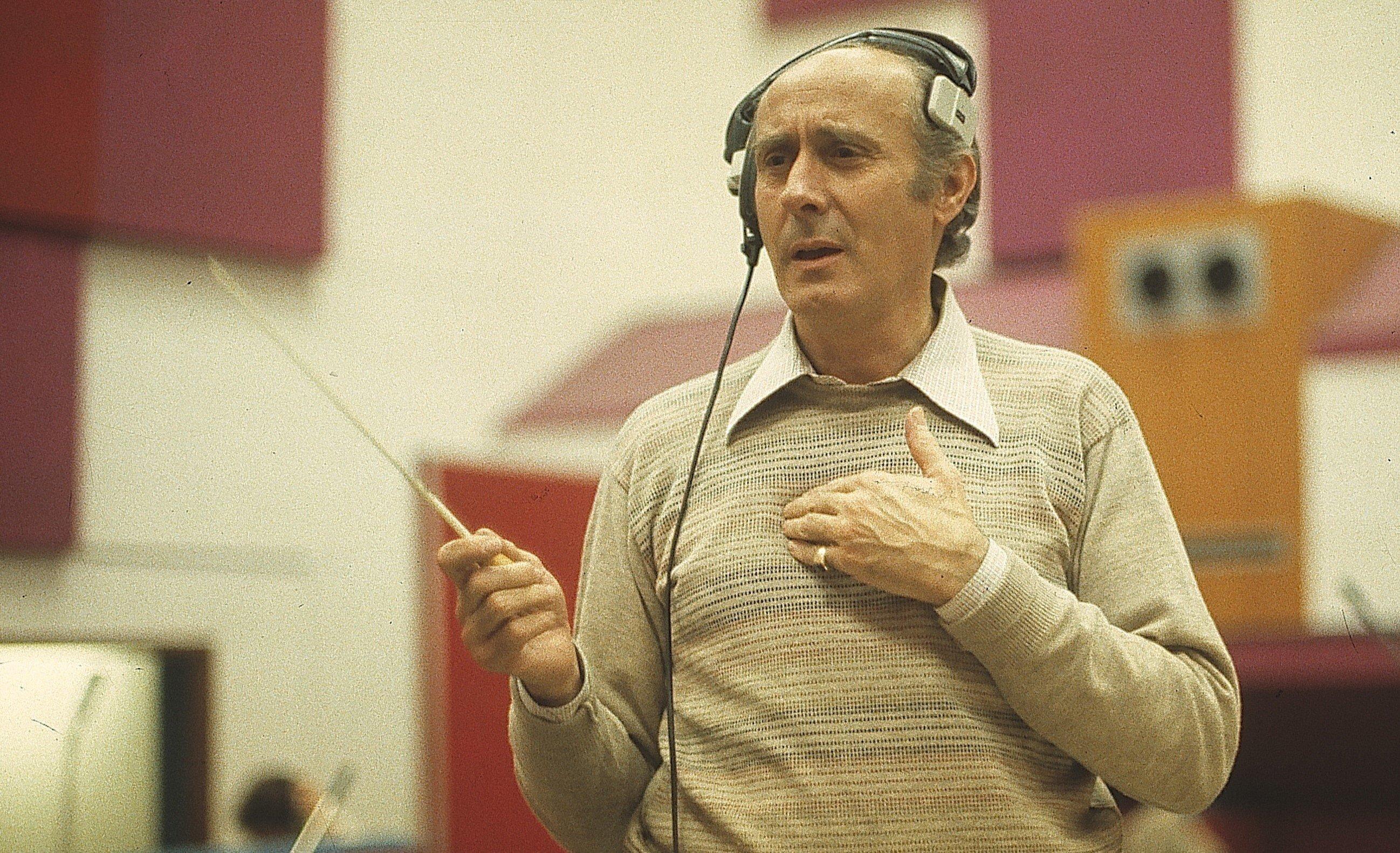
Photo: A. Schorr/ullstein bild via Getty Images
list
10 Essential Henry Mancini Recordings: From "Moon River" To The 'Pink Panther' Theme
Composer, arranger, conductor and pianist Henry Mancini won 20 GRAMMY Awards over his legendary career. On what would be his 100th birthday, revisit 10 timeless Henry Mancini compositions.
Henry Mancini had a gift for melodies of an ethereal, almost supernatural beauty.
His prolific discography — albums of jazzy orchestral pop, dozens of film and television soundtracks — established him as a cultural icon and transformed the role that melody and song played in the art of movie narrative. Once you encounter a Henry Mancini tune, it’s almost impossible not to start humming it.
A composer, arranger, conductor and pianist of tireless discipline, Mancini won a staggering 20 GRAMMY Awards and was nominated 72 times. All of his wins — including the first-ever golden gramophone for Album Of The Year at the inaugural 1959 GRAMMYs — will be on display at the GRAMMY Museum to honor his centennial birthday, April 16.
To mark what would be his centennial birthday, Mancini's children will travel to Abruzzo, Italy — where Mancini’s parents migrated from. And on June 23, the Hollywood Bowl Orchestra will present a program of his music with a gallery of guest stars including singer Monica Mancini, the maestro’s daughter. Out June 21, The Henry Mancini 100th Sessions – Henry Has Company will feature a new recording of "Peter Gunn" conducted by Quincy Jones and featuring John Williams, Herbie Hancock and Arturo Sandoval.
Although Mancini died in 1994 at age 70, his compositions remain timeless and ever-relevant. Read on for 10 essential Henry Mancini compositions to cherish and rediscover.
"Peter Gunn" (1958)
In 1958, Mancini was looking for work and used his old Universal studio pass to enter the lot and visit the barber shop. It was outside the store that he met writer/director Blake Edwards and got the chance to write the music for a new television show about private detective Peter Gunn.
Seeped in West Coast Jazz, Mancini’s main theme sounds brash and exciting to this day – its propulsive beat and wailing brass section evoking an aura of cool suspense. The "Peter Gunn" assignment cemented his reputation as a cutting-edge composer, and the accompanying album (The Music From Peter Gunn) won GRAMMYs in the Album Of The Year and Best Arrangement categories.
"Mr. Lucky" (1959)
Half of the "Peter Gunn" fan mail was addressed to Mancini. As a result, CBS offered Blake Edwards a second television show, as long as the composer was part of the package. Edwards created "Mr. Lucky," a stylish series about the owner of a floating casino off the California coast.
1959 was an exhausting year for Mancini, as he was scoring two shows at the same time on a weekly basis. Still, his music flowed with elegance and ease. The "Mr. Lucky" ambiance allowed him to explore Latin rhythms, and the strings on his wonderful main theme shimmer with a hint of yearning. It won GRAMMY Awards in 1960 for Best Arrangement and Best Performance by an Orchestra.
"Lujon" (1961)
As part of his contract with RCA Victor, Mancini was committed to recording a number of albums featuring original compositions in the same velvety jazz-pop idiom from his television work. "Lujon" is the standout track from Mr. Lucky Goes Latin, a collection of Latin-themed miniatures that luxuriate in a mood of plush languor.
Inspired by the complex harmonics of French composer Maurice Ravel, "Lujon" steers safely away from lounge exotica thanks to the refined qualities of the melody and arrangement.
"Moon River" (1961)
Performed on a harmonica, the main melody of "Moon River" is nostalgic to the bone, but also life affirming. A majestic string section makes the music swoon, like gliding on air. And the harmonies in the vocal chorus add gravitas — a touch of humanity.
It took Mancini half an hour to write "Moon River," but the Breakfast at Tiffany’s anthem made him a global superstar. Among the many artists who covered the song, pop crooner Andy Williams turned it into his personal anthem. Mancini won an Academy Award for Best Original Song, and GRAMMY Awards for Record Of The Year, Song Record Of The Year and Best Arrangement. The album soundtrack earned two additional gramophones.
Theme from Hatari! (1962)
After two failed attempts with different composers, legendary director Howard Hawks invited Mancini to write the score for Hatari! — the wildly episodic but oddly endearing safari film he had shot in Tanganyika with John Wayne. Mancini jumped at the opportunity, and Hawks gave him a few boxes from the trip that contained African percussive instruments, a thumb piano and a tape of Masai tribal chants. Two chords from that chant, together with a slightly detuned upright piano formed the basis for the movie’s main theme.
Mancini’s sparse arrangement and melancholy melody conspired to create one of the most gorgeous themes in the history of film.
"Days of Wine and Roses" (1962)
Throughout the decades, Mancini provided musical accompaniment to Blake Edwards’ filmography, which switched from slapstick comedy to stark melodrama. There is a perverse beauty to the theme of Days of Wine and Roses — a movie about a couple of lifelong alcoholics — as the lush choral arrangement seems to glorify the innocence of better times.
It won an Academy Award for Best Original Song — Mancini’s second Oscar in a row — and three GRAMMYs: Record Of The Year, Song Of The Year and Best Background Arrangement.
"The Pink Panther Theme" (1963)
Directed by Edwards and starring Peter Sellers as part of an ensemble cast, the original Pink Panther was a frothy caper comedy that had none of the manic touches of comedic genius that Sellers would exhibit in subsequent entries of the franchise. It was Mancini’s ineffable main theme that carried the movie through.
Jazzy and mischievous, Mancini wrote the melody with the light-as-a-feather playing of tenor saxophonist Plas Johnson in mind. It won GRAMMYs in three categories: Best Instrumental Arrangement, Best Instrumental Compositions (Other Than Jazz), and Best Instrumental Performance – Non-Jazz.
Charade (1963)
Mancini’s gift for cosmopolitan tunes and jazzy arrangements found the perfect vehicle in the score for Stanley Donen’s Charade — a droll Hitchcockian thriller shot in Paris and starring Cary Grant and Audrey Hepburn.
The main theme is a waltz in A minor, and opens with pulsating percussion. When the central melody appears, it evokes a melancholy reflection and a certain thirst for the kind of globetrotting adventure that the film delivers in spades. It was Johnny Mercer’s favorite Mancini melody, and he wrote exquisite lyrics for it.
The best version probably belongs to jazz singer Johnny Hartman, who released it as the opening track of his 1964 album I Just Dropped By To Say Hello.
Two For The Road (1967)
Friends and family remember Mancini as a humble craftsman who ignored the trappings of fame and focused on the discipline of work. In 1967, after Audrey Hepburn cabled to ask him about writing the music for the Stanley Donen film Two For The Road, Mancini agreed, but was taken aback when the director rejected his initial theme. Leaving his ego aside, he returned to the drawing board and delivered a lovely new melody – and a spiraling piano pattern seeped in old fashioned tenderness.
"Theme from The Molly Maguires" (1970)
Even though Mancini enjoyed most accolades during the ‘60s, his protean level of inspiration never wavered. In 1970, he was brought in to rescue the soundtrack of Martin Ritt’s gritty secret societies drama The Molly Maguires, about Irish-American miners rebelling against their mistreatment in 19th century Pennsylvania.
The main theme makes time stand still: a sparse arrangement that begins with a solitary harp, until a recorder ushers in a haunting, Irish-inspired melody. The score reflected a more restrained Mancini, but was still intensely emotional.
